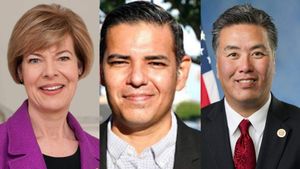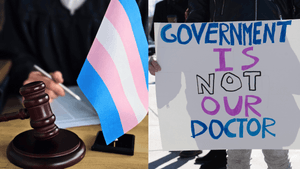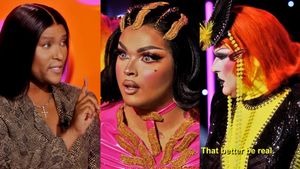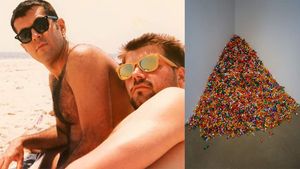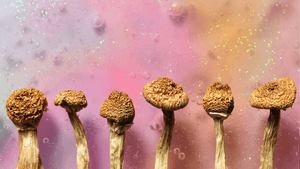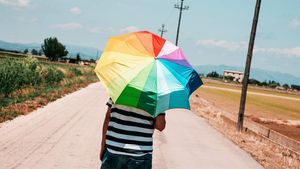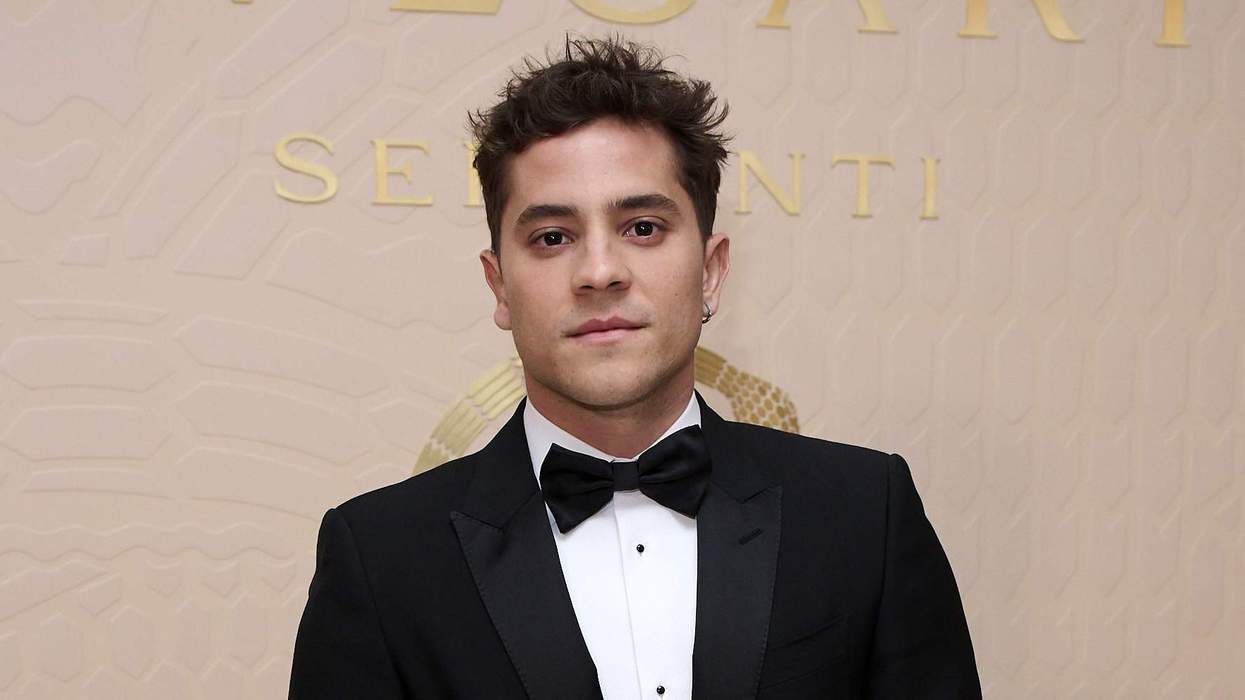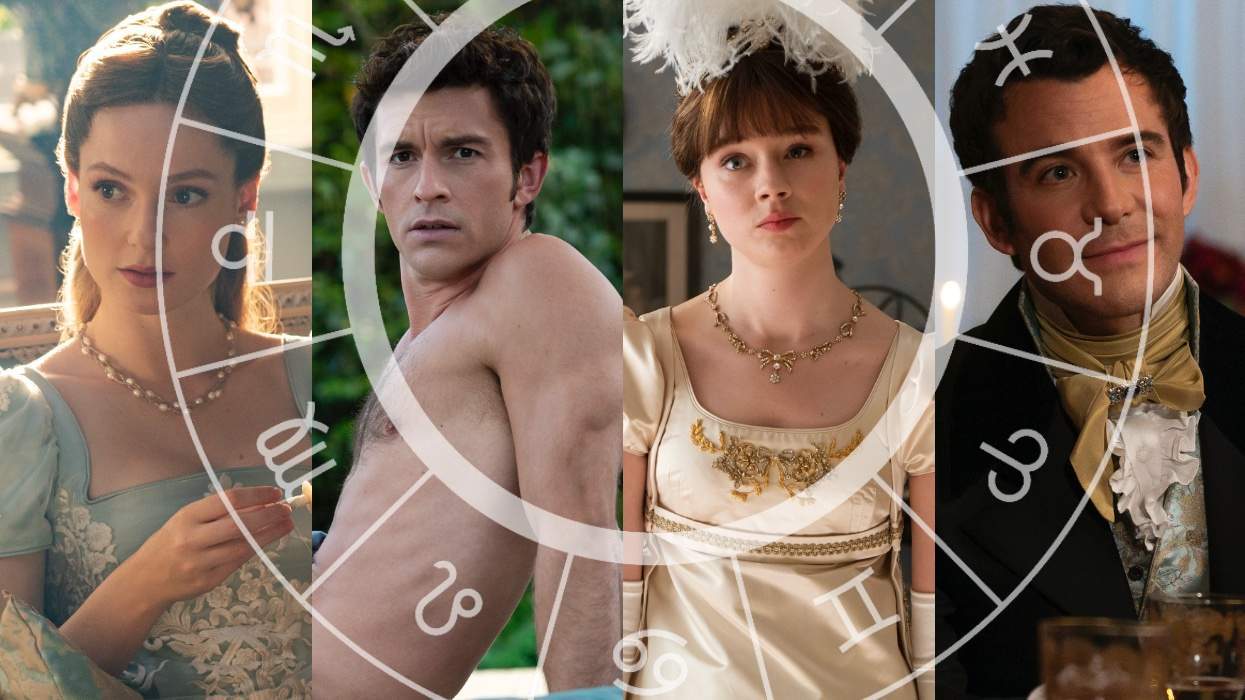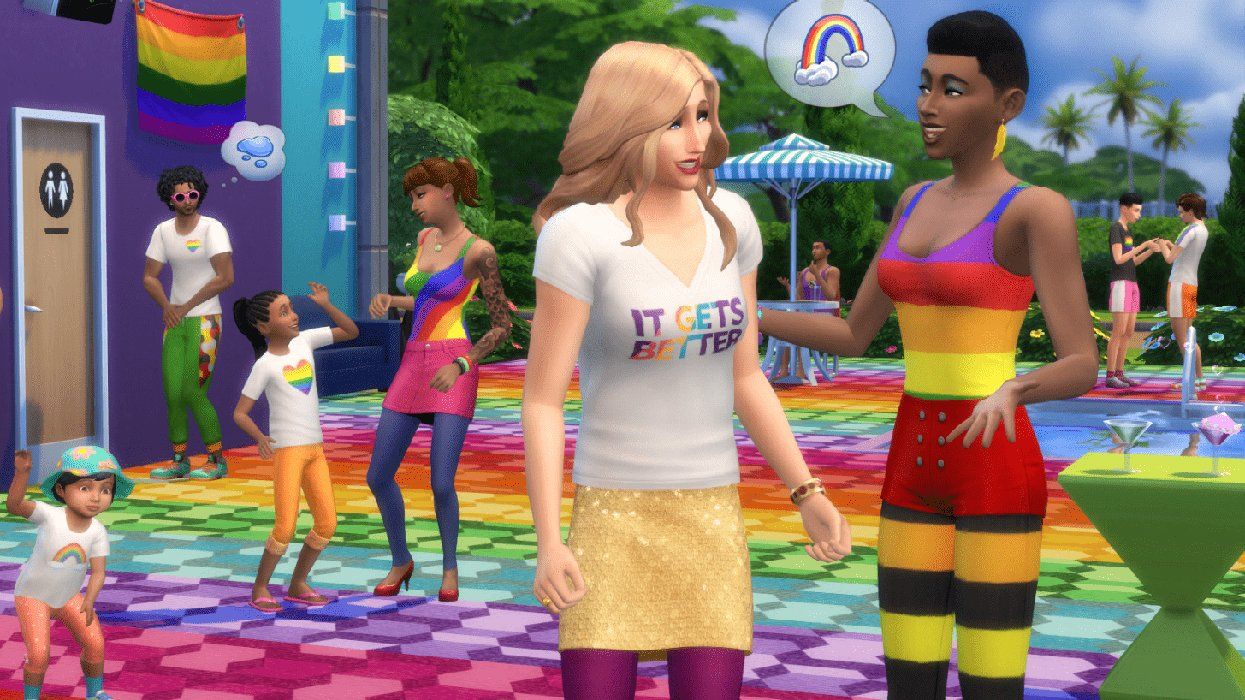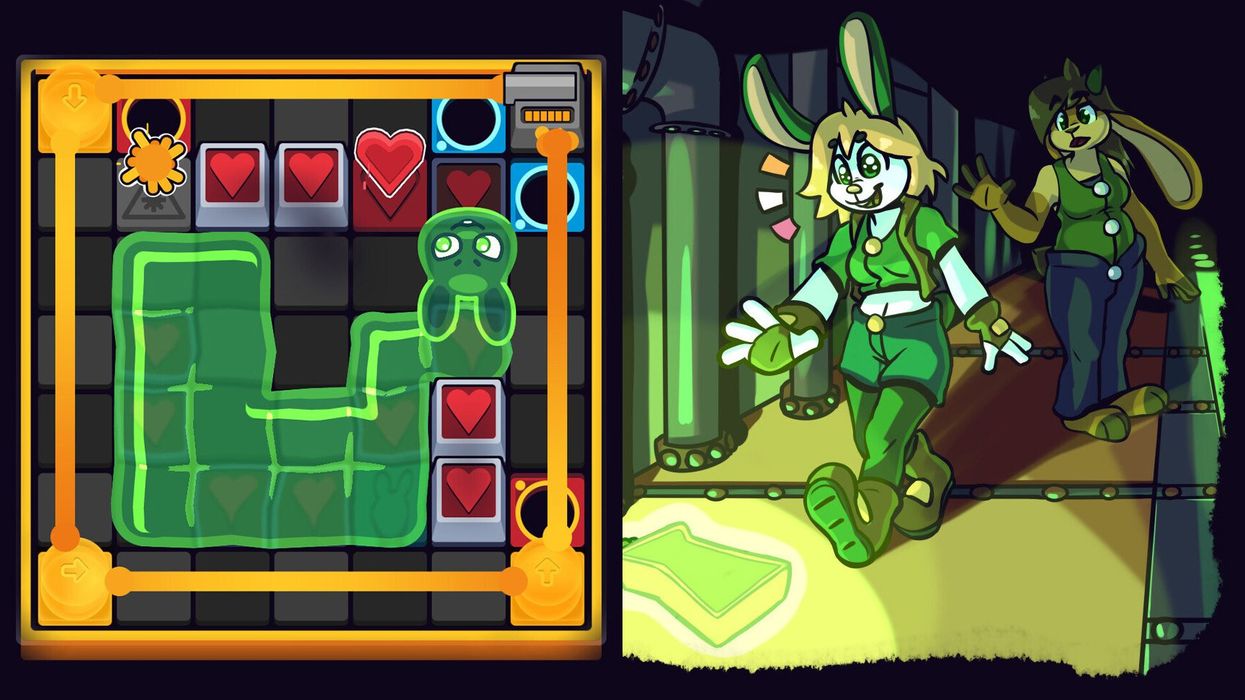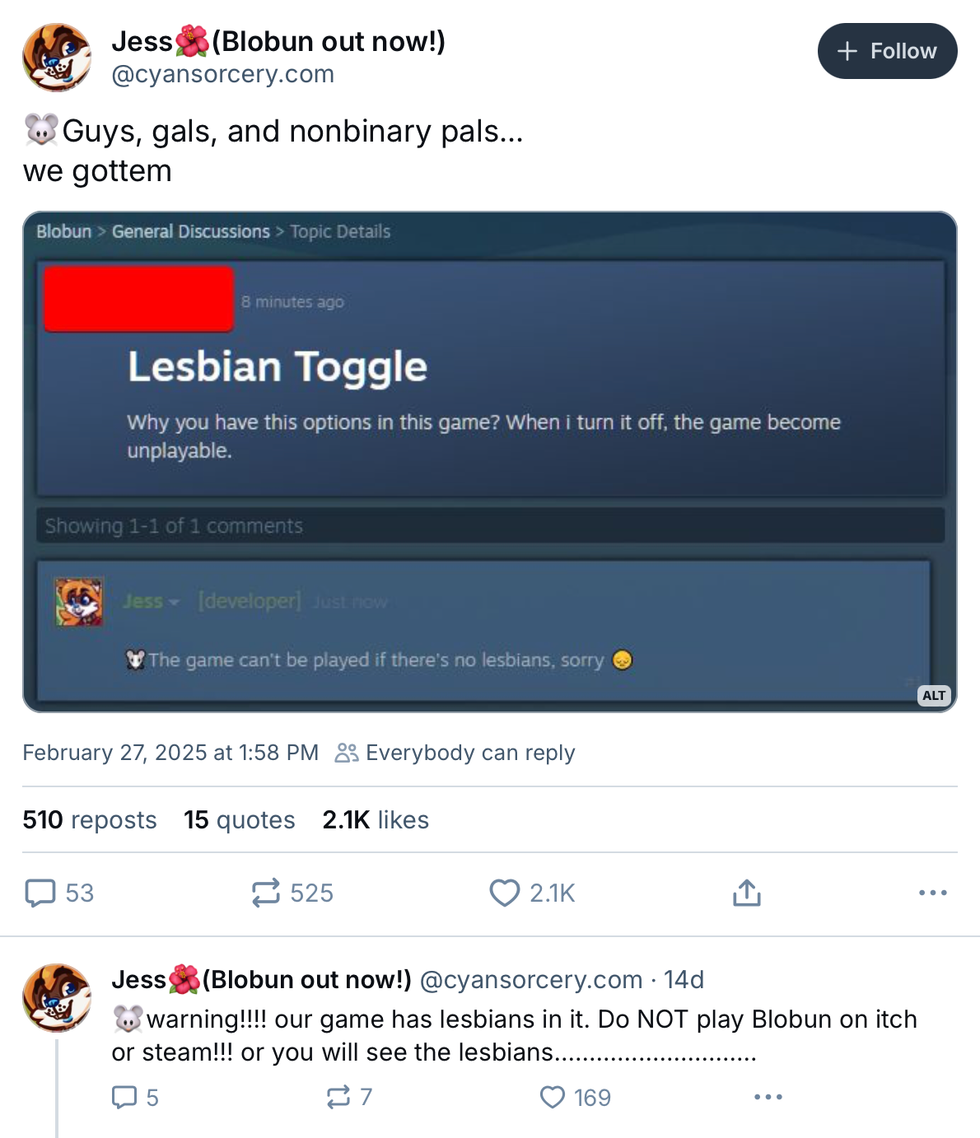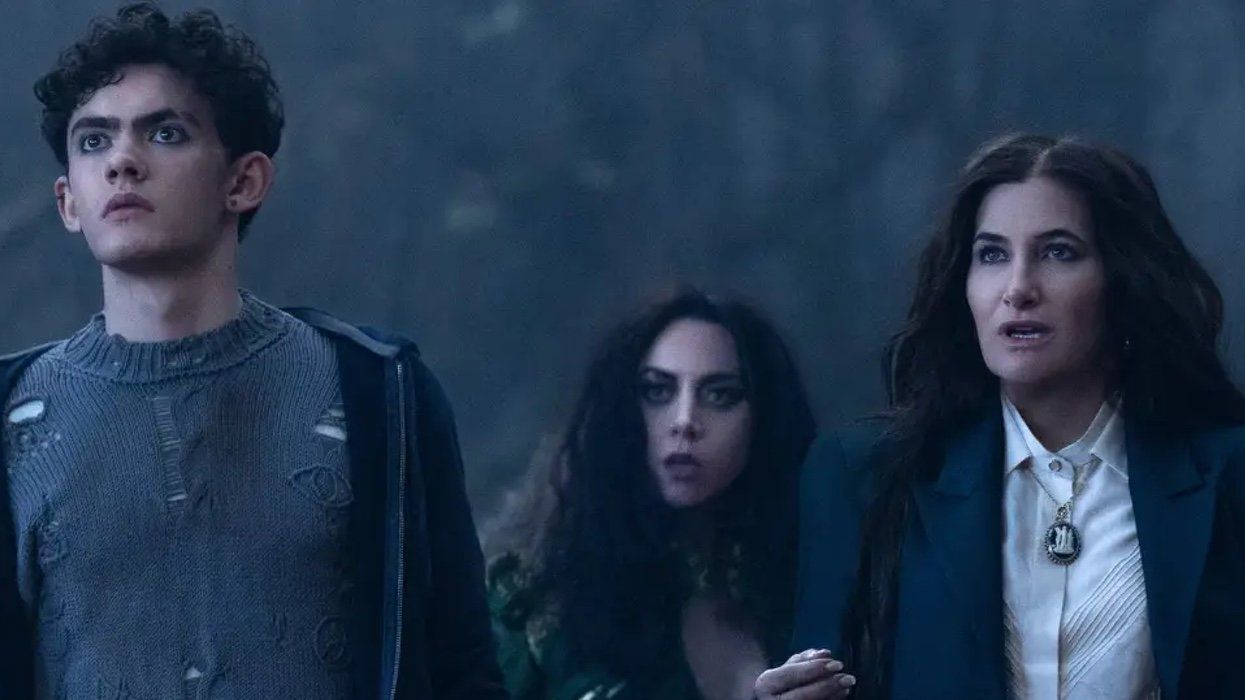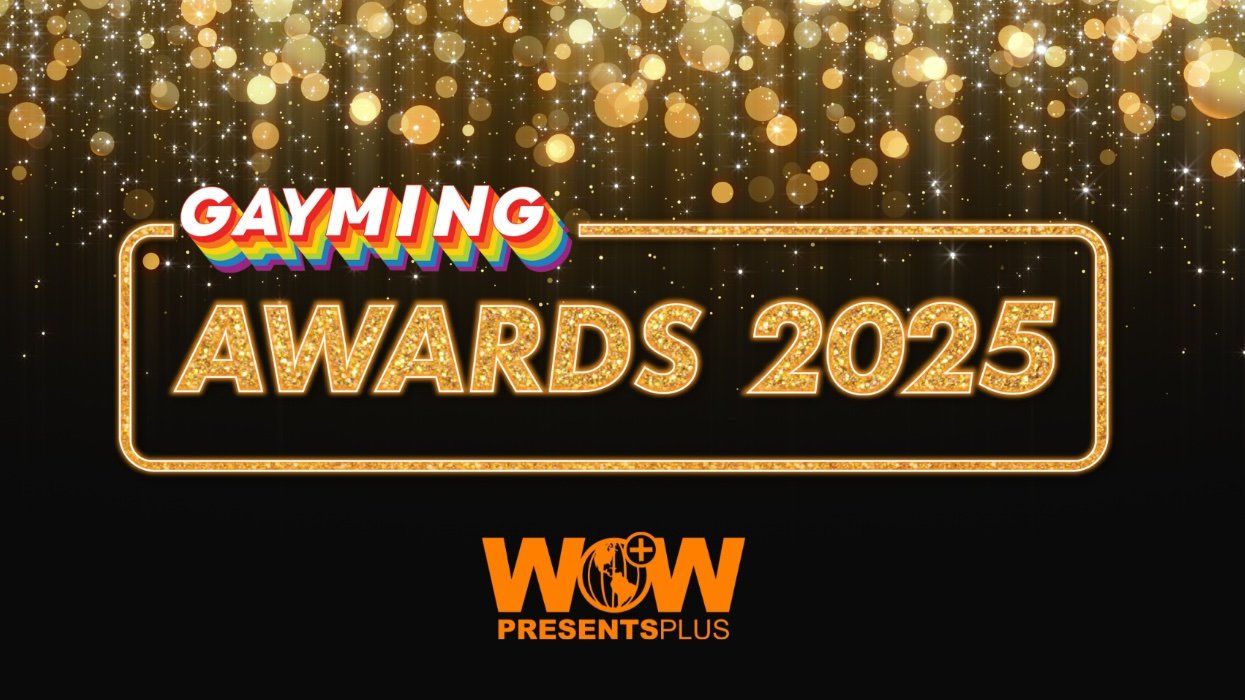Since its inception, The Sims has been a trailblazer when it comes to LGBTQ+ representation in video games. The original version of The Sims enabled players to pursue same-sex romances, and over the franchise’s 22 years of development it has continued to expand character-building options and storylines to allow for a greater and more diverse representation of queer folks along with their (simulated) lives.
The latest iteration of the games, The Sims 4, is no different, and its creators at Maxis have a very exciting new development coming very soon.
On July 28, a gameplay update is being released alongside the game’s latest expansion pack, The Sims 4: High School Years, which introduces new sexual orientation options. “We’ve taken a bunch of steps in the last several years to further branch out and be more inclusive. Not so long ago, we did the pronouns update, to allow you to give custom gender pronouns to your Sims. So this is another step in that journey,” The Sims 4 senior designer and design lead Jessica Croft tells PRIDE. “With this one, you'll be able to define your Sims’ romantic interests and also their physical interests. We’re cleaving those two apart; those are separate things because we want to be able to reflect a broader range of stories, including asexual and aromantic Sims as well.”
What makes this latest addition to the game so exciting is that it centers a part of the queer community that’s so often overlooked, and one that Croft says the development team at Maxis is excited to represent. “It's very important to us. We're aware that this is a thing that players have been demanding, because honestly, it's quite frustrating as a queer person myself, having a Sim that identifies as lesbian, but [relationship] autonomy [a function of the game that allows the Sims to make some of their own choices] makes my Sim flirt with men, and it's like, ‘goddamn it game.’ So being able to satisfy what the player wants has to be part of it. But also, it felt like the right thing to do,” Croft explains.
“The story I hear all the time from this community is the story of an LGBTQIA+ player who sees themselves reflected in media for the very first time in The Sims, and from that they know who they are is normal and that everything will be OK. And that's really powerful,” she shares. “A lot of team does identify as LGBTQIA+, so it was very important to us internally as well.”
But all representation isn’t equal, which is why Croft says that when Maxis is planning to add new stories and features to the game like this, being able to do it right is just as important as being able to do it at all. “I think the very first question we ask is, can we do this right? Can we do this in a way that will uplift the community that we're trying to represent? And that led to a lot of our outreach to GLAAD and It Gets Better, for example, because, again, a lot of the team identifies as queer — I identify as lesbian — but any one of us only represents a small sliver of lived experience,” she explains. “So the conversation quickly became what resources do we have to make sure that we can get a broad range of input to make sure this is right.”
What makes this change particularly innovative is that it allows the characters’ identities to change and evolve through gameplay. There are two stories Croft says these changes will allow for: the person firmly knows who they are and someone still trying to figure that out. “I very much know who I am, and I figured it out a long time ago, I'm not really figuring it out,” she shares. “So my story is I'm not exploring, but when you talk about teens, the classic story is trying to figure out who you are.”
“I think The Sims is a very optimistic game. And I think when we approach features that are around identity, you try to approach it from [the perspective of] is there a story here that might help a player better understand who they are and make them a happier person make them better be able to navigate some part of their life,” she said.
To that end, Croft says the team spent a long time speaking with Gen-Zers to get their take on the game and what was important to them. Common threads they discovered are that players not only learned about themselves as they’re reflected in their characters, but have also felt empowered to take risks and try new things without fear. “It’s a game, but it’s also a life simulator. It’s a little tongue in cheek sometimes, but I think it’s one of those ways you can see yourself reflected,” says Croft.
“For me growing up as a kid, I didn’t have good blueprints on what a queer relationship should look like,” she reveals. “We look at the stories we tell [as a society], and it’s like, ‘there’s a mama bear and a papa bear.’ And there’s not even a glimmer of understanding as to what something outside of that very heteronormative structure looks like. That’s where The Sims can be really powerful, writing this blueprint.”
When it comes to the technical side of things, creating asexual Sims was fairly straightforward. Things became tricky when trying to figure out how to create aromantic Sims, because of the way the game is structured. “Right now, physical interaction [is gated] behind the romance. So we had to rethink, like, how do we create a system where players can get to those physical intimacy moments without having to go down the romance path because that’s kind of the story of an aromantic person,” Croft recalls. “We came around to the decision to add the concept of ‘Woohoo Partners,’ which I don’t love that name,” she laughs. “But if you’re very close with somebody, as a friend, and you can propose that you might be physically intimate with them as a Woohoo Partner, then that ‘ungates’ the intimacy from romance.”
While there’s no questioning this is a step forward in telling a greater number of queer romance stories, Croft acknowledges there’s more work to be done. “We look at this as a v1.0. It’s a step in the journey towards a better, more inclusive future, but it’s not the finish line by any stretch,” she admits.
Another area where Croft admits the series still has growth potential is that these new choices are still technically rooted in the binary. That’s a result of the game being built nearly a decade ago, she explains. “We’re looking at how to better navigate that, and while I can’t really specify what our next step is, I can definitely say what’s important to us. And that’s to make sure that all of the aspects of our community are reflected,” she says, adding, “I expect there to be a lot of discourse about this. And I think that’s great. Actually, I think players asking for more is totally fine, because that’s how we get progress, right?”
One thing the game doesn’t have, nor will it ever, is the ability to toggle off this new sexual identity feature. “We often give the ability to toggle features on and off, like, say, relationship autonomy, because they might be very intrusive to the overall gameplay experience. But I think when you talk about something like identity, that doesn’t feel like something you should be able to turn off. You shouldn’t be able to flip a switch and turn off queer people,” Croft says. “We’re very firm in that stance... at the end of the day, queer people are a part of life, and we don’t want you to just toggle them off. That feels disrespectful.”
The Sims 4: High School Years and the new sexuality identity features (which are a core addition and available to all players) arrive on July 28.
RELATED | Nintendo to Recognize Gay Marriage for Employees, Defying Japan’s Ban










